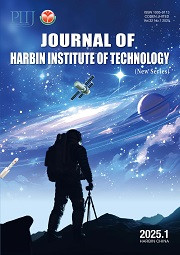|
| Abstract: |
| In order to improve the public transit’s accessibility and promote service quality of the public transit, it is necessary to alleviate the “last-mile” problem. The combination of the public transit and bicycle-sharing system is competitive compared with the private car. In 2016, the dockless bicycle-sharing system has been undergoing tremendous development. Because the dockless bicycle-sharing system is different from previous bicycle-sharing systems, components of service quality of the dockless bicycle-sharing system differ. However, there are few articles about the service quality of the dockless bicycle-sharing system. This paper examined the evaluation of service quality of the dockless bicycle-sharing system along with a measurement of users’ satisfaction. A questionnaire about service quality was designed, which includes 15 factors. Through the analysis of travelers’ evaluation of factors of the dockless bicycle-sharing system with Rasch Model, these original ordinal data (Likert data) was transformed to the interval data: the person parameter (ability) and the item parameter (difficulty). Through the analysis of interviewees’ abilities, it was found that only education and monthly consumption have significant influence on interviewees’ evaluation of service quality of the dockless bicycle-sharing system, while there is no significant influence of gender, weekly use of dockless shared-bicycle, private car ownership, or monthly income on the evaluation. Furthermore, it was found that users were dissatisfied with cycling under the adverse weather, disturbance from pedestrians and cars, continuity of the bicycle lane, complaint channel, and staff service the most. |
| Key words: dockless bicycle sharing system service quality Rasch Model demographic characteristic evaluation of travelers |
| DOI:10.11916/j.issn.1005-9113.18073 |
| Clc Number:U121 |
| Fund: |
|
| Descriptions in Chinese: |
| 使用者如何评价公交自行车系统服务质量? 刘建荣 (华南理工大学 土木与交通学院,广州 510640) 创新点说明:论文利用Rasch模型研究共享自行车服务质量,通过Rasch模型,出行者主观评价的定序数据转化为定距数据。通过对定距数据的分析,确定了出行者个人属性对主观评价的影响,以及出行者对服务质量的各个因素的评价。 中文说明: 为研究共享自行车服务质量,本文采用Rasch模型T检验、ANOVA 方法。通过Rasch模型,将出行者主观评价的定序数据转化为定距数据。研究发现,月消费、教育程度对服务质量评价有影响;性别、使用频率、私家车拥有情况、月收入对服务质量评价无影响;出行者最不满意的服务质量因素包括:不良天气下的骑行环境、行人和汽车的干扰、自行车道的连贯性。研究结果表明:出行者的部分个人属性会影响到出行者对于共享自行车服务的评价;为提高服务质量,应注意完善自行车道。 关键词:共享自行车;服务质量;Rasch模型;个体特征;出行者主观评价 |




